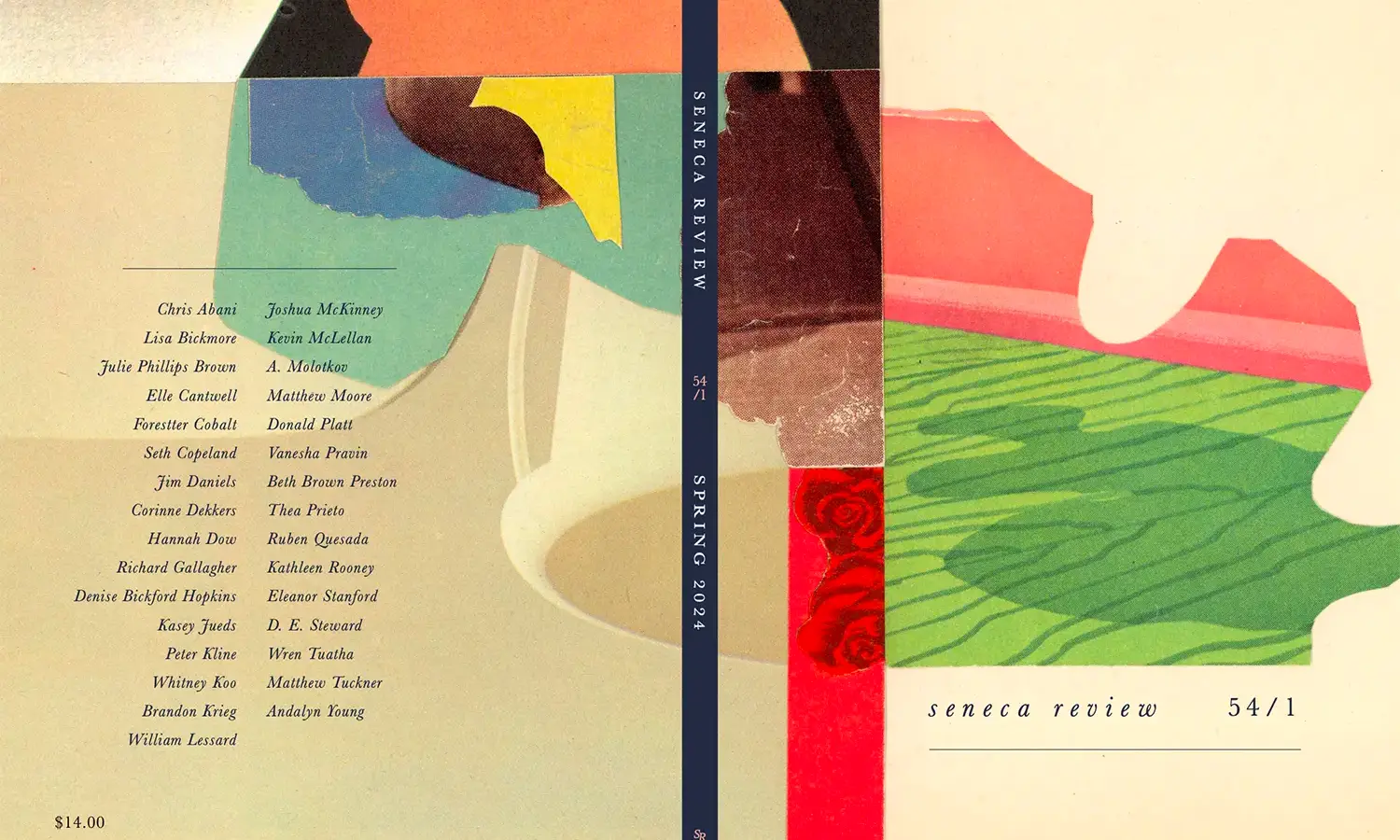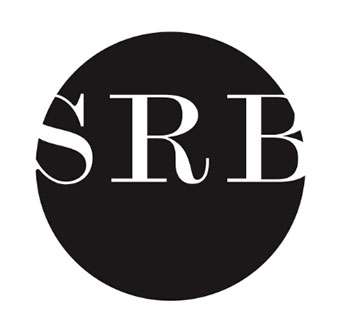
HWS News
11 June 2024 New from Seneca Review
A look back at Hobart and William Smith’s internationally renowned literary magazine’s 2023-24 year.
Seneca Review’s new issues feature poems, essays, art and multimodal work by some of today’s most innovative, established and emerging writers and artists. Meanwhile, Seneca Review editor and Associate Professor of English Geoffrey Babbitt and his “Small Press Book Publishing” class selected the winner of the biennial Deborah Tall Lyric Essay Book Prize. Here’s the latest from the literary world at HWS.
New Issues
The fall 2023 and spring 2024 issues feature a mix of leading and emerging literary talents.
Alongside the cover art by Assistant Professor of Art and Architecture Max Piersol ’16, the fall issue includes work by Kazim Ali, Sandra Simonds, Donald Revell, Rebecca Lehmann, Jenny Browne, Joshua Marie Wilkinson, Charles O. Hartman, Brenda Beardsley, Erika Brumett, Abigail Chabitnoy, Sophia Chong, Meriwether Clarke, Lydia Golitz, Helen Hofling, Halee Kirkwood, Hannah Leckrone, Julie Lunde, Angie Macri, Caroline Manring, Ariél M. Martinez, Visiting Associate Professor of Africana Studies James McCorkle, Claire McQuerry, Lisa Pasold, Supritha Rajan, Danielle Ryle, Meg Shevenock, and Professor Emeritus of English and Creative Writing David Weiss.
“Reading Karen Barad on a Saturday Afternoon” by Kazim Ali — HWS’ 2024-25 Trias Writer-in-Residence — was featured on Poetry Daily.
The spring issue features Chris Abani, Kathleen Rooney, Ruben Quesada, Jim Daniels, Eleanor Stanford, Lisa Bickmore, Joshua McKinney, Brandon Krieg, Julie Phillips Brown, Elle Cantwell, Forestter Cobalt, Seth Copeland, Corrine Dekkers, Hannah Dow, Richard Gallagher, Denise Bickford Hopkins, Kasey Jueds, Peter Kline, Whitney Koo, William Lessard, Kevin McLellan, A. Molotkov, Matthew Moore, Donald Platt, Vanesha Pravin, Beth Brown Preston, Thea Prieto, D. E. Steward, Wren Tuatha, Matthew Tuckner, and Andalyn Young.
Both issues are now available for order.

Seneca Review Books
Last fall, Seneca Review Books (SRB) selected the next title in the Deborah Tall Lyric Essay Book Prize Series. Through Babbitt’s publishing course, students read and evaluated 15 semifinalist manuscripts out of the hundreds of entries submitted to the competition, ultimately presenting five finalists to judge Wendy S. Walters.
Walters selected Matthew Morris’s The Tilling as the winner of the 2024 book prize.
“We are thrilled to release Morris’ book, which is a lyrical memoir of his experiences growing up biracial in the U.S.,” says Babbitt.
The Tilling will be published by SRB in November.
Literary Knowledge and Resourcefulness
Seneca Review continues to offer opportunities for students to grow as writers and editors and understand the small press industry from the inside.
This summer, Hannah Angelico ’25 will help develop Seneca Review’s “Beyond Category” online database of the magazine’s work that doesn’t fall neatly into a particular genre or tradition. Seneca Review has sought out and cultivated innovative writers for more than 50 years. Known as the birthplace of the Lyric Essay, the magazine was an early champion of multimodal and hybrid-forms writing.
During the spring 2024 semester, Seneca Review and SRB staff attended the 2024 Association of Writers & Writing Programs (AWP) Conference and Bookfair in Kansas City.
“Every year, thanks to funding from the President’s Office, Seneca Review takes two or three students to AWP, which is the largest creative writing conference in North America…. Our students consistently leave me impressed, as Katelyn Weeks ’24 and Ella Weiss ’24 did this year,” Babbitt says. “When they run our bookfair table, they have a very challenging task—representing a literary journal with over 50 years of history, answering a host of wide-ranging (and sometimes unpredictable) questions, selling copies of our books and journal issues, speaking with our readers about past work we’ve published, discussing the lyric essay with other writers, helping promote the Deborah Tall Lyric Essay Book Prize, and much more. To do this well — to think on one’s feet and speak articulately and convincingly about complex, and even potentially controversial, literary issues in short windows of time — requires no small amount of literary knowledge and resourcefulness. This kind of work is usually done, at the other tables, by faculty or graduate students. In fact, that is precisely how Katelyn and Ella came across to many fellow writers with whom I spoke — as graduate students. They fit in seamlessly with all the MFA students attending the conference. I’m quite proud of the way they represented HWS and Seneca Review.”
Learn more about the Seneca Review, Seneca Review Books, Hobart and William Smith Colleges Press and the Deborah Tall Lyric Essay Book Prize here.
